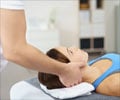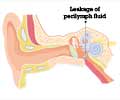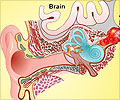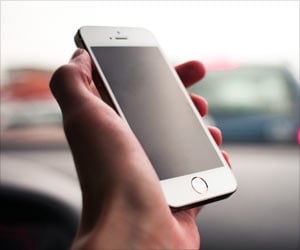Are you suffering from severe dizziness? Don't worry, special goggles may help diagnose how severe and what type your vertigo is.

‘Are you suffering from severe dizziness? Don't worry, special goggles that measure eye movements during an episode of vertigo may help diagnose how severe and what type your vertigo is.’
Read More..




"Vertigo can be a disabling condition, so an accurate diagnosis is important to effectively treat and stop vertigo as soon as possible," said study author Miriam S. Welgampola, MD, Ph.D., of the University of Sydney in Australia and a member of the American Academy of Neurology. "Observing a person's eye movements during an episode can help make the diagnosis, but people don't always have an episode when they are at the doctor's office."Read More..
For the study, researchers gave participants a pair of video-oculography goggles that record the uncontrolled eye movements that accompany vertigo.
The study involved 117 people who had been previously diagnosed with one of three conditions that cause vertigo. Of the group, 43 people had Meniere's disease, an inner ear disorder that can affect hearing and balance, 67 had vestibular migraine that can cause vertigo but may not cause a headache, and seven had benign paroxysmal positional vertigo, one of the most common causes of vertigo, where a person's head movements trigger the episodes.
The research team taught each participant how to use the goggles to record video of their eye movements at home whenever they had a vertigo episode. Eye movements that accompany vertigo are repetitive and uncontrolled, and the eyes can move side to side, up and down or around in circles.
For the majority of people with Meniere's disease who had fast horizontal eye movements, the goggles were able to diagnose the type of vertigo accurately with a sensitivity of 95 percent and a specificity of 82 percent. Sensitivity is the percentage of actual positives that are correctly identified as positive. Specificity is the percentage of negatives that are correctly identified. By comparison, audio tests for Meniere's disease have both a sensitivity and specificity of 91 percent.
Advertisement
For those with benign paroxysmal positional vertigo, the sensitivity was 100 percent, and the specificity was 78 percent.
Limitations of the study include that some participants did not feel well enough to wear the goggles when experiencing vertigo. Additionally, others did not wear them when they thought their vertigo was too mild. Also, some medications taken for vertigo may have influenced eye movement.
More studies are needed in larger groups of people.
Source-Eurekalert















